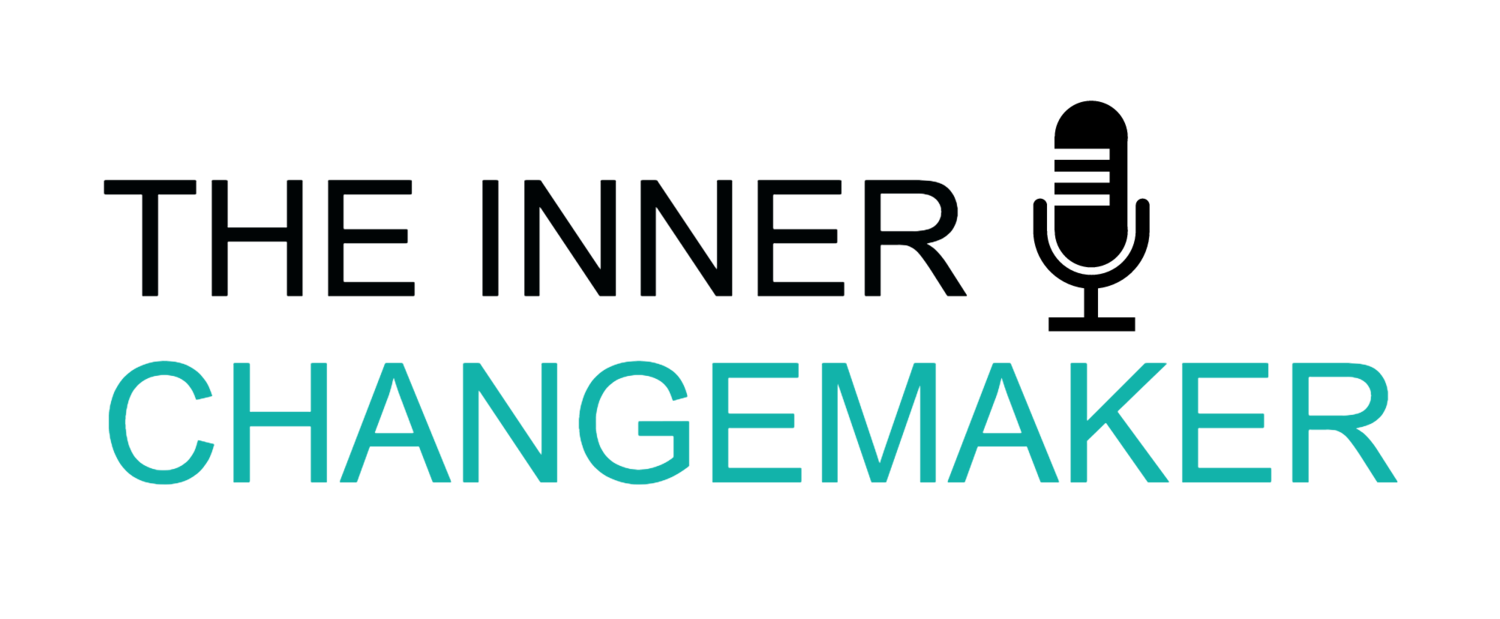Own Your Story: 9 Nuggets of Wisdom from Philip McKernan
/Earlier this year, I had the incredible pleasure of interviewing Philip McKernan on my podcast, ‘The Inner Changemaker,’ and you might expect, it was a rich and insightful discussion that covered everything from understanding our relationship to money to authentic goal setting.
For those not familiar with Philip's work, he speaks around the world about the importance of overcoming personal obstacles, gaining clarity, and cultivating the confidence to believe in yourself.
He's shared the stage with some of the top speakers in the world, people such as Steven Covey, Richard Branson and the Dalai Lama to name a few. He's worked with all sorts of people, from housewives to Olympic athletes, TV personalities and entrepreneurs, billionaires and people who’ve gone bankrupt.
Philip has helped people all over the world uncover their dysfunctional relationship to money and their inability to get in touch with their own deep intuition, preventing them from living an authentic, meaningful life.
What follows are 9 nuggets of authentic wisdom taken from our conversation.
In truth, this list could have grown to 20 items or more, such is the sheer depth of Philip's ideas and the simple brilliance of his worldview.
I hope you gain as much clarity from Philip's words as I did, and be sure to check out the full interview on The Inner Changemaker podcast!
1. Respect your talents, but don't ignore your gifts.
We all have talents - things we're naturally good at, be it mathematics, mechanical aptitude, that sort of thing. Often the authority figures in our lives - parents, teachers, and the like - encourage us to follow those talents in order to get a good job and achieve material success. It's a very logical and intellectual way of approaching one's future. The difficulty is, it often overlooks the gifts every human being shares - dreams and aspirations that go beyond simple material success. Ignoring these gift and focusing entirely on talent shuts down the opportunity to answer a greater calling.
"That's a gift, a way of connecting with people, of opening people up, of speaking to others, coaching others, whatever you want to call it... [Ignoring that gift] is also the mistake that I made for many years of my life."
2. Stop obsessing about money.
Most of our thinking is driven around money. It informs our every decision and more often than not, gets in the way of our dreams and aspirations and distorts your reality. There are ways of acknowledging your gifts, of 'leaning into them' as Philip says, without compromising your current financial situation. The key is to stop making money the sole driving force behind your life choices.
"Sometimes people need to spend those three to five to ten or in some cases 45 years to actually realize the financial thing, and that it wasn’t the answer."
3. Don't live vicariously through your children.
Our parents often have a great deal of influence on our dreams and aspirations, not only by what they say and do, but also by what they don't say and do. Parents often end up destroying their children's dreams under the pretense of wanting 'what's best for their child.' This misguided protectiveness is often born from the parent's unresolved issues or their own subverted aspirations. As difficult as it may sometimes be, we must always be ready to stand back and allow our children the space to explore their own gifts, find their own answers and discover their own path, wherever that may lead.
"I think we have a moral obligation as parents in this world, if we have kids, to realize what we are projecting onto our children by what we do and what we do not do."
4. Approach goal-setting with a powerful question: Why?
Goal-setting is an immensely popular activity, backed by a large amount of research showing that when you set an intention to go and get something (a goal), you have a greater likelihood of achieving it because you focus your mental energy, your physical energy and your team, and everything begins to conspire to achieve that thing. The difficulty is, the moment you create a goal, you're dragging yourself out of the present and into the future. Goals are, by their very nature, future-based concepts. The solution is to dig into the *why* of each 'goal,' to understand what it is that makes it so important, to ensure that the goals you set are in alignment with your gifts.
"The more that you need money to prove that you are happy the more misaligned you are to your calling, your gift."
5. We need to redefine 'success.'
There are many people with tremendous success. They are wealthy on paper, but outside of the material things they are often insecure and lonely, unsure of who they are at the core of their being. People rarely ask themselves who they are on a deep level, so as a result they look for validation outside themselves - to wealth, trophies, media profiles - and they fall further and further out of alignment with their gifts and their true selves. They have lost themselves in the trappings of success. Reconnecting with the deep, inner self, with your own identity helps you to put success in it's proper perspective.
"I deal with celebrities. I deal with sports athletes. I deal with billionaires. I deal with people with no money, who want to start a business. I deal with couples. I am telling you the same principles apply to the billionaires and to the non-billionaires, the same principles apply, the same challenges."
6. The path to clarity is through better questions.
Opening up can often be a difficult process. One the best ways to 'unlock yourself' is by asking better questions. Avoid surface questions such as "What do I need to be happy?" or "What do I need to change to build abundance in my life?" Questions such as these do not allow us to serve others in a meaningful way.
Ask questions such as:
• How happy am I really in my life right now?
• Is this really the work that I am destined to do?
• What part of my life do I not want to see?
• What part of myself am I not allowing the world to see?
• What am I afraid of?
• What am I here to give?
• What part of my story can enlighten other people?
"[Some clients and I] were in India looking over the Himalayas and the Ganges was just coming out of the mountains in the distance... I just stopped the group and I said, "Guys I may never be here again, you may never be here again, we’ve just been through a soul opening process, a heart opening process, a mind bending process and you are telling me that these are the conversations you want to have on this mountain? About the air conditioning in my new car not working quite right, the Starbucks just beside me not making the coffee the way they- is this really the conversation you want to have right now?" We spend so much time as human beings having stupid conversations that are irrelevant to ourselves and humanity and we don’t even realize how often we are having them."
7. Stop making the journey about you.
Even with the best of intentions, we often make decisions from a deeply selfish mindset. As parents we provide opportunities for our kids because we don't wan them to have the same lives we did, without taking into account the hopes and aspirations of the child. We don't stand on a stage and share our stories because we feel embarrassed, despite the fact that there could be one person in that audience whose life could be uplifted and validated by our stories. We see the tapestry of life through the lens of our limiting beliefs, societal standards for success, and of course, money. Our core purpose and passion must be tied up in the positive impact we can have on others.
"That is the outcome from doing and aligning ourselves to meaning in our lives: Vulnerability. Bring vulnerability in ways that scare the living shit out of you. Be okay saying in front of your children "I don’t know." Be okay saying in a podcast, "I don’t have the answer. I am not as happy as I thought I was." Be okay with the truth, be okay with it."
8. Own your story and share it with the world.
Everyone has a story. Everyone. The difficulty is, sharing that story with others is terrifying for many of us. We even hide from it, focusing on being 'busy,' on building a future. However when the work is over, your story remains, whether you're comfortable with it or not. You will never get comfortable with your story until you start sharing it with others. Otherwise it ends up controlling your unconscious decisions, undermining your capabilities.
When you begin sharing your story, there may be those who will say that theirs is more dramatic, but this is not a contest. What makes your story unique is the fact that it is *[yours.]* It's human, and real, and contains an honesty that can touch another human being in a meaningful way.
"[The] 'One Last Talk' [event] is where I take non-speakers, people who don’t speak professionally, and I put them on the stage in front of a hundred, two hundred, three hundred people. What's amazing about that is I take them away on speaker retreat in advance and I bring their story out. This is about, 'Hey, this is my story, this is an element of my story. This is how it unfolded, and this is what I learned from it.' And what ends up happening is... people start to deeply relate because they are real human stories and the speaker starts to realize, 'Oh my God, I have impacted somebody with nothing other than my story.'"
9. Understand the relationship between your past, your present and your future.
Focusing on owning your story often lacks the appeal and sexiness of 'Become a billionaire by 21' seminars and programs. We're often seduced by the lure of financial gain and believe that this will give us the freedom to develop our story. The difficulty is of course, it simply doesn't work that way. Wealth is transient, a form of external motivation that does nothing to help you align with your gifts or to impart wisdom - often quite the opposite. Developing and embracing your story, learning will serve you (and others) long after the money has gone.
"So your story is literally determining the rest of your life, whether you like it or not. As I say, your past has created your present and your present is creating your future so everything you are today is determined by your past: who you hang out with, where you have lived, which school you went to, what alcohol you consume, what drugs you took, how much water you drank. Everything, your physicality, your mind, your brain, your soul."
This was an incredibly fascinating discussion with an incredibly inspiring person. I'd like to conclude by offering a final piece of wisdom from Philip, appropriately enough, in his own words:
"...we look at life and we measure ourselves and we give ourselves the permission to consider what’s possible based on the image that we hold for ourselves. The saying that I have that I hope sums this up is: We give ourselves what we feel we deserve."
Be sure to listen to the entire interview on 'The Inner Changemaker' podcast!
--
Interested in becoming a podcaster?
For so long, I have known that I wanted to not only get the opportunity to interview my own heroes but to get my message out there in a BIGGER way.
Now that I have cracked the code, speaking internationally at podcasting conferences, I want to help other messengers and creators do the same.
I will be hosting a few masterclasses next week to show you specifically "How you can launch and create a top-rated podcast in 60 days"
See which time works for you
Wednesday, May 4th, 2016 | Thursday, May 5th, 2016 | Saturday, May 7th, 2016







